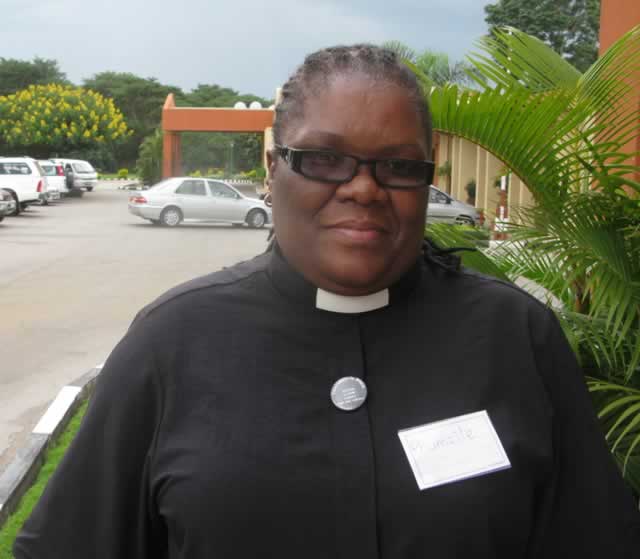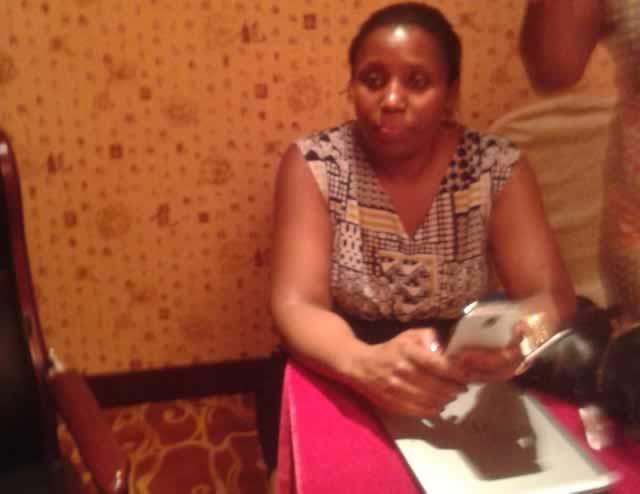Working towards zero tolerance
burden on orphans and vulnerable children?
Yesterday, Zimbabwe joined the rest of the world in commemorating World Aids Day and we should not let it become a one-day event.
Let it be a part of you. Together, we can make a change and move to attaining zero new infections, zero discrimination and zero Aids-related deaths by 2015.
Every big fire starts at a small spot.
Touched by the plight of people after disasters the world over, a Zimbabwean youth and musician, Anderson Mamimine, joined hands with The Centre and formed the Positive Life Choir.
The Centre, an organisation focusing on the treatment, care and support for people living with HIV (founded by the late philanthropist Lynde Francis) came on board with Mamimine when he brought out voices of positive living.
Mamimine, who acknowledges that music is the best form of communication, realised the need to address the plight of victims of human rights abuses, protecting child rights and giving children voices. In all this he sought to articulate the needs of the voiceless in society.
The Centre and Anderson through the initiative, Save Humanity Project, are disseminating information through song and dance.
Supported by local artistes Oliver Mtukudzi, Chiwoniso Maraire, Albert Nyathi, Willis Wataffi, Victor Kunonga and others they have come up with their first compact disc, “Hell on Earth”.
The CD carries eight compositions – “Shout”, “Hell on Earth”, “Going Green”, “Condom Generation”, “Unite for Children”, “Hard Knock Life”, “Beautiful Homeland” and “Thank You”.
Mamimine says it is possible to mitigate the spread of HIV through song and dance.
“Using appropriate messages we can scale up the prevention of new infections, mobilise partners and prioritise funding for ART,” he said.
Mamimine and The Centre believe that community livelihoods play a crucial role in the development of the lives of the affected people.
They have therefore set out to alleviate poverty and educate the orphans.
“Everyday I see orphans, we have forgotten about that train disaster that occurred in Dzivarasekwa years back which left little ones on their own. Some of them have moved to live in a squatter camp in the Extension area and it touches me.
“There are also some orphans who lost parents due to Aids-related deaths and all these children are vulnerable and need assistance,” said Mamimine.
“I hope the proceeds from the music will be able to send orphans to school. In Dzivarasekwa Extension where I work with a support group, there are school-going orphans who are out of school and it is my wish to see them get an education,” he said.
“The Centre will open a trust fund for the purpose of handling the funds and disbursement,” he added.
“We intend to tour selected cities and growth points creating awareness among the communities thereby sensitising communities about prevention and behaviour change. We then intend to embark on regional and international tours if all goes well,” said Mamimine.
With The Centre working in six provinces in Zimbabwe, namely Mashonaland East, Masvingo, Manicaland, Midlands, Matabeleland North and Harare province the organisation works with 1 200 volunteers and 1 500 support groups.
Music is a unifier and both the old and young identify with it.
The Centre last Friday handed over a nutrition garden to Bako reDonhodzo Old People’s Home (Soda) in Highfield as part of their community responsibility. They worked with with volunteers in Highfield, Glen Norah and Hopley for the garden to be a success.
Invited guests together with the volunteers did some general cleaning of the home that included sweeping the elderly’s rooms, cutting grass and making flower beds.
The establishment of the nutrition garden and general cleaning of the old people’s home is a built-up event designed to commemorate International Volunteers’ Day on December 5.
The main objectives of establishing the garden were to volunteer for the community, to promote and demonstrate volunteerism to other community members, to promote the values of volunteering and mobilise more people to volunteer their time and skills.
The nutrition garden has a variety of vegetables that will provide the nutrition needs of the elderly.
This initiative is part of the campaign to strengthen community development work through volunteerism.
“As people get older, their bodies get weak, so they need more nutrition than younger people to keep their bodies healthy and fit,” said Mr Hamandishe Satande, the programme officer for The Centre speaking at the handover of the garden.
As an organisation concerned about the well-being of people living with HIV and vulnerable people, The Centre decided to help the elderly by donating their skills and time to promote healthy eating among the elderly.
Mrs Hudson, board member for Bako reDonhodzo, expressed her gratitude to The Centre and the volunteers for making a difference to the elderly at the home.
Entertainment was provided by volunteers who celebrated the event through song, dance and drama.








Comments